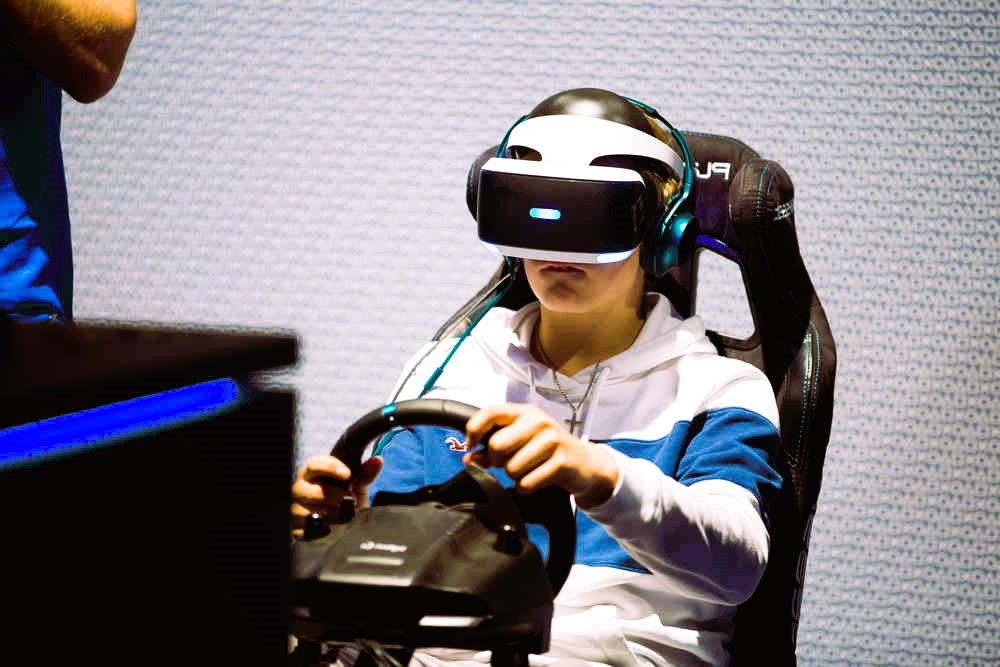The gaming industry is constantly evolving, driven by advancements in technology, shifts in consumer behavior, and changes in cultural trends. As we look to the future, several emerging trends and technologies are poised to shape the landscape of gaming in exciting and innovative ways. In this article, we’ll explore some of these trends and technologies that are shaping the future of gaming.
1. Virtual Reality (VR) and Augmented Reality (AR)
Virtual reality and augmented reality have the potential to revolutionize the way we experience games. VR immerses players in virtual worlds, allowing them to interact with environments and characters in unprecedented ways. AR, on the other hand, overlays digital elements onto the real world, creating interactive experiences that blend the virtual and physical realms. As VR and AR technology continues to improve and become more accessible, we can expect to see a proliferation of immersive gaming experiences that blur the lines between reality and fiction.
2. Cloud Gaming

Cloud gaming, also known as game streaming, allows players to stream games directly from remote servers to their devices, eliminating the need for powerful hardware and physical game downloads. Services like Google Stadia, Microsoft xCloud, and NVIDIA GeForce Now are leading the charge in cloud gaming, offering players access to a vast library of games on-demand. With the increasing availability of high-speed internet connections and advancements in cloud infrastructure, cloud gaming has the potential to democratize access to games and redefine the way we play.
3. Artificial Intelligence (AI)
Artificial intelligence is revolutionizing many aspects of gaming, from procedural content generation to character behavior and game design. AI-powered algorithms can create dynamic and personalized experiences tailored to each player’s preferences and skill level. In addition, AI can enhance non-player character (NPC) behavior, making enemies more intelligent and adaptive, and enhancing the overall immersion and challenge of the game. As AI technology continues to advance, we can expect to see even more sophisticated and immersive gaming experiences powered by intelligent algorithms.
4. Blockchain and NFTs
Blockchain technology and non-fungible tokens (NFTs) are opening up new possibilities for ownership, monetization, and distribution in the gaming industry. NFTs allow players to own and trade unique in-game assets, such as skins, weapons, and virtual real estate, with provable scarcity and authenticity. Blockchain-based games also enable decentralized ownership and governance models, empowering players to have more control over their gaming experiences and the virtual economies within them. As blockchain and NFTs gain traction in the gaming industry, we can expect to see new business models and revenue streams emerge, as well as greater player autonomy and ownership. Did you like the article? We recommend that you familiarize yourself with eSports.
5. Cross-Platform and Cross-Progression
Cross-platform play and cross-progression are becoming increasingly prevalent in gaming, allowing players to access their games and progress seamlessly across multiple devices and platforms. Whether you’re playing on console, PC, or mobile, cross-platform compatibility enables players to connect with friends, compete in multiplayer matches, and access their game libraries from anywhere. Cross-progression takes this a step further by syncing player progress and achievements across different platforms, ensuring a consistent and uninterrupted gaming experience. As gaming becomes more ubiquitous across devices and platforms, cross-platform play and cross-progression will continue to be key trends shaping the future of gaming.
6. Social and Community Integration

Gaming has always been a social activity, and the rise of social and community integration features is further blurring the lines between gaming and social media. Features like integrated voice chat, streaming, and community hubs enable players to connect, communicate, and collaborate with friends and fellow gamers within the game environment. Social features also facilitate user-generated content, such as mods, maps, and custom game modes, fostering a vibrant and creative community ecosystem. As gaming platforms continue to evolve, we can expect to see even more robust social and community integration features that enhance the multiplayer and social aspects of gaming.
Conclusion
The future of gaming is bright and full of possibilities, thanks to emerging trends and technologies that are reshaping the industry in exciting and innovative ways. From virtual reality and cloud gaming to artificial intelligence and blockchain, the gaming landscape is evolving rapidly, offering new opportunities for immersive experiences, creative expression, and community engagement. As we look ahead, one thing is certain: the future of gaming is bound to be an exhilarating journey filled with endless possibilities and limitless potential.
For more insights into the future of gaming and emerging trends and technologies, visit Wikipedia.

